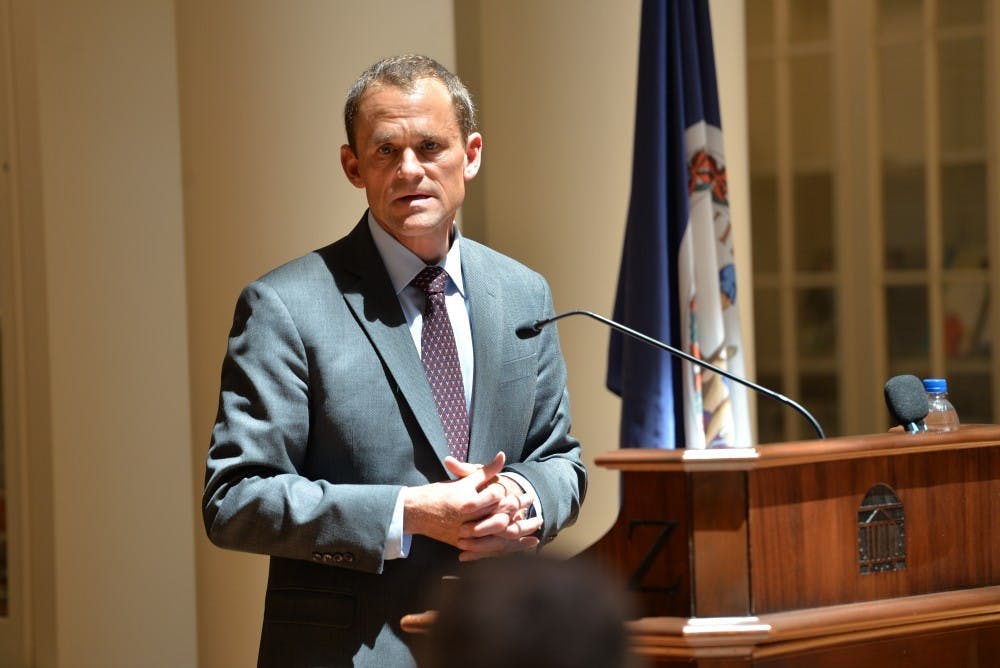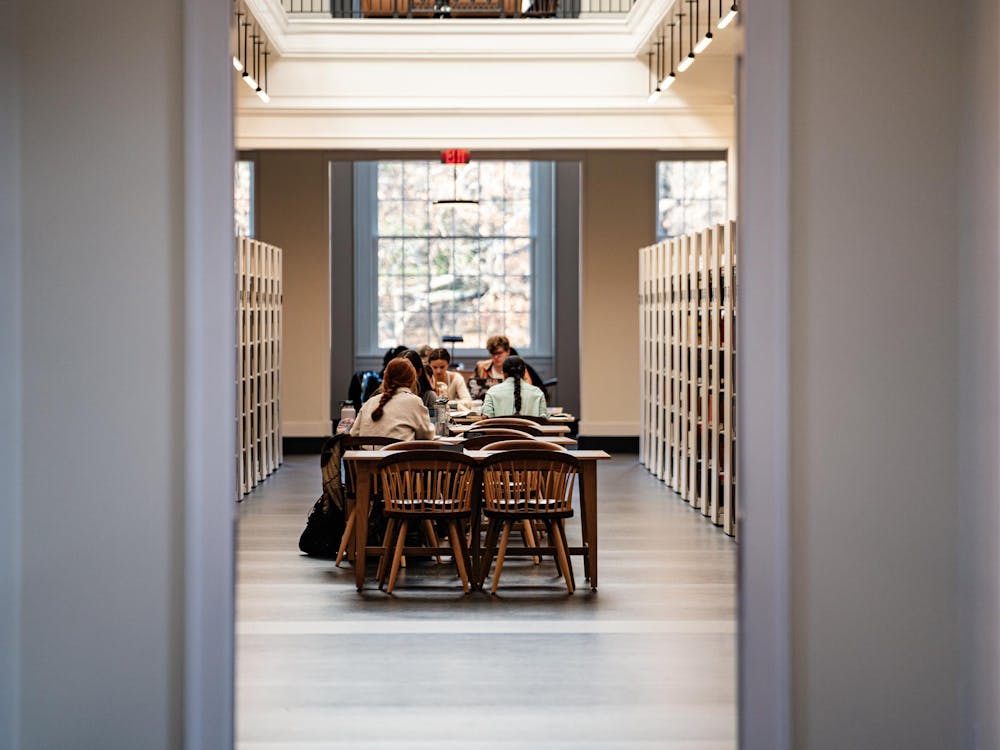University President Jim Ryan told The Cavalier Daily in an interview earlier this month that he does not support a University-wide cancellation of classes on Election Day, pushing back against a long-term goal of Student Council.
“I totally appreciate the interest in the election and voting,” Ryan said. “I can’t say that I’m in favor of cancelling classes. I think if students can work out with faculty arrangements, especially around exams, that would be fine. But I think it needs to remain in the faculty’s discretion.”
Ryan continued, adding that polls are open for 13 hours — from 6 a.m. to 7 p.m. — which “would be ample time for someone to exercise the right to vote.”
The suggestion for faculty to not hold exams initially proposed by the Student Council, University Democrats and College Republicans earlier this month. Though total cancellation is a goal they have on the horizon, in the immediate future they are currently working to encourage faculty to cancel “significant exams” on Election Day.
This proposal was unanimously agreed upon during a Student Council meeting earlier this month, following the circulation of a petition signed by over 50 faculty.
Though Ryan stated that the University will not formally give a seal of approval to the proposal, the president suggested that the faculty can still use their individual discretion to decide how they would like to schedule their class on Nov. 6.
Media Studies Prof. Siva Vaidhyanathan — who had signed the pledge not to hold major exams on Election Day — said he agrees with Ryan’s stance.
“Each course operates at a different pace,” Vaidhyanathan said in an email to The Cavalier Daily. “I don’t think it’s a good idea to require exams on Election Day or on major religious holidays. But holding class sessions are a lot less taxing than holding exams.”
Batten Prof. Sally Hudson — who signed the petition and is the co-founder of Fair Vote Virginia, a ranked choice voting advocacy group — also said she doesn’t agree with canceling classes.
“I think professors should avoid giving tests, especially evening exams, because students end up choosing between voting and last-minute cramming,” Hudson said in an email. “We can all wish they'd budget time for voting in advance, but we know many won't. Since we also have good evidence that lifelong voting is a habit, I'm willing to flex a little to encourage students to groove that habit while they're young.”
Another petition signatory, Assoc. History Prof. Andrew Kahrl, said he supports the cancelation of classes if students are compelled to help community members vote.
“Yes, President Ryan is absolutely right — most college students have ample time during the day to vote,” Kahrl said in an interview. “The problem is that there are many working people here in Charlottesville who don't have a lot of time during the day on Election Day to vote and it's a real struggle for them to get to the polls ... So I support the idea of students using that day to help others get to the polls and ensuring a fair election."
Isaac Weintz — a third-year College student and Student Council Legislative Affairs Committee chair — said in an email that Student Council still stands by its proposal, despite the president's comments.
“Student Council stands firm in its position that classes during Election Day are indeed an obstacle for students in voting,” Weintz said. “No exams on Election Day is just the first step in eliminating the multitude of obstacles that stand in the way of students.”
Weintz also pushed back against Ryan’s note that 13 hours is “ample time” to exercise the right to vote.
“Yes, the polls are open for thirteen hours on Election Day,” Weintz said. “However, with the variety of polling locations both on and off grounds, long waiting lines and transportation time voting is often times more than an easy fifteen-minute activity.”
Jackson Samples — a third-year College student and campaigns chair for the University Democrats — said that although the proposal to cancel exams can still be carried out through the faculty, it is a significant loss that the University is not supporting the eventual move towards class cancellation.
“While working on the issue of Election Day exams with faculty has made some progress, help from the administration in the form of cancelling classes on Election Day would have a much greater impact,” Samples said.
Robert Andrews, a fourth-year College student and College Republicans chairman, said he understands that Ryan must focus on academics, but that he also thinks the proposal should at least be given a trial run.
“We should at least give it a shot for one year to actually get some data,” Andrews said. “We don’t have any evidence within the University, or, from what I understand, the Commonwealth, to show that cancellation works [to promote voter turnout], so I think if you tried it one time and then you looked at the numbers before and after, that would give you an indicator of whether its effective or not.”





